Solve each of the following systems of simultaneous inequations:
2x + y>1 and 2x - y ≥ - 3
Consider the inequation 2x + y>1:
⇒ y>1 - 2x
Consider the equation y = 1 - 2x
Finding points on the coordinate axes:
If x = 0, the y value is 1 i.e, y = 1
⇒ the point on Y axis is A(0,1)
If y = 0, 0 = x + 2
⇒x = ![]()
The point on the X axis is B(![]() ,0)
,0)
Plotting the points on the graph: fig. 7a
Now consider the inequality y>1 - 2x
Here we need the y value greater than x + 2
⇒ the required region is below point A.
Therefore the graph of the inequation y>1 - 2x is fig. 7b
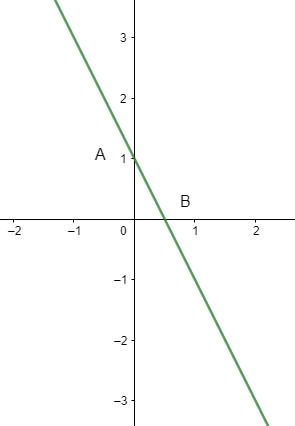
Fig 7a
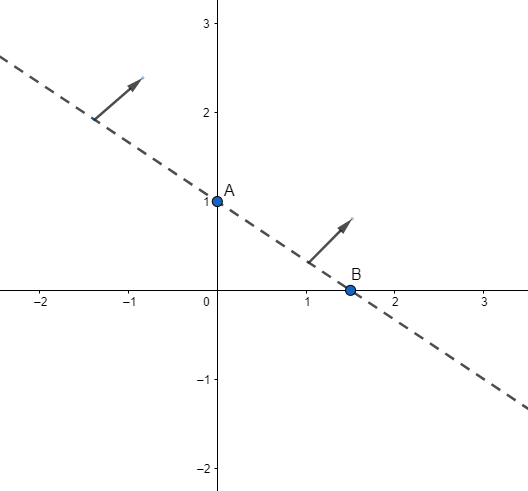
Fig 7b
Consider the inequation 2x - y ≥ 3
⇒ y≤2x - 3
Consider the equation y = 2x - 3
Finding points on the coordinate axes:
If x = 0, the y value is - 3 i.e, y = - 3
⇒ the point on the Y axis is C(0, - 3)
If y = 0, 0 = 2x + 3
⇒x = ![]()
The point on the X axis is D(![]() ,0)
,0)
Plotting the points on the graph: fig. 7c
Now consider the inequality y≤2x - 3
Here we need the y value less than or equal to 2x - 3
⇒ the required region is below point C.
Therefore the graph of the inequation y≤2x - 3 is fig. 7d
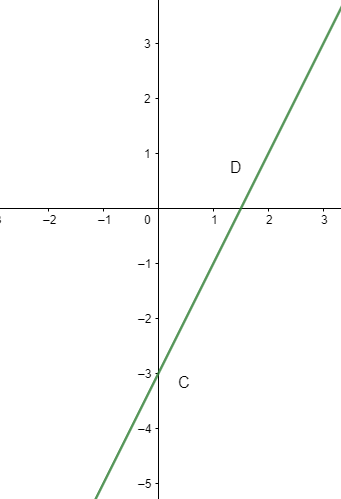
Fig 7c
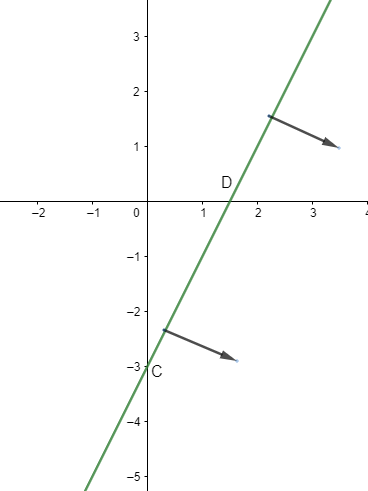
Fig 7d
Combining the graphs 7c and 7d, we’ll get,
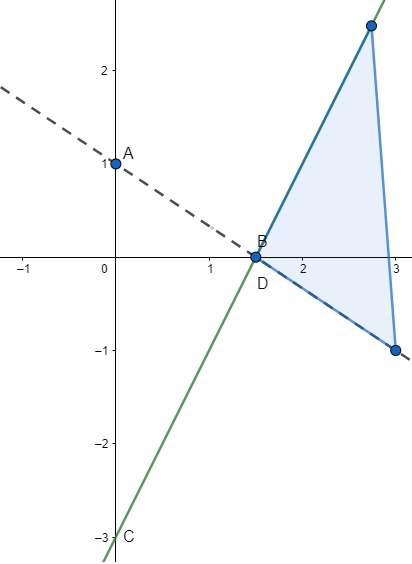
The solution of the system of simultaneous inequations is the intersection region of the solutions of the two given inequations.